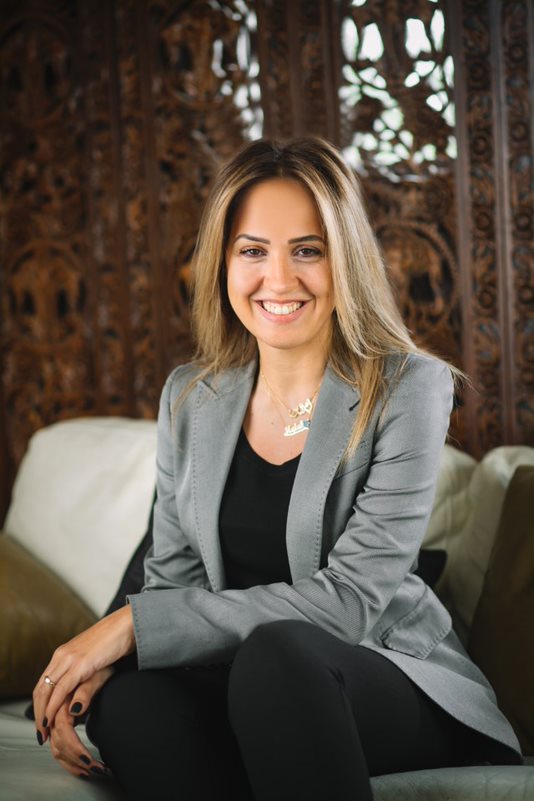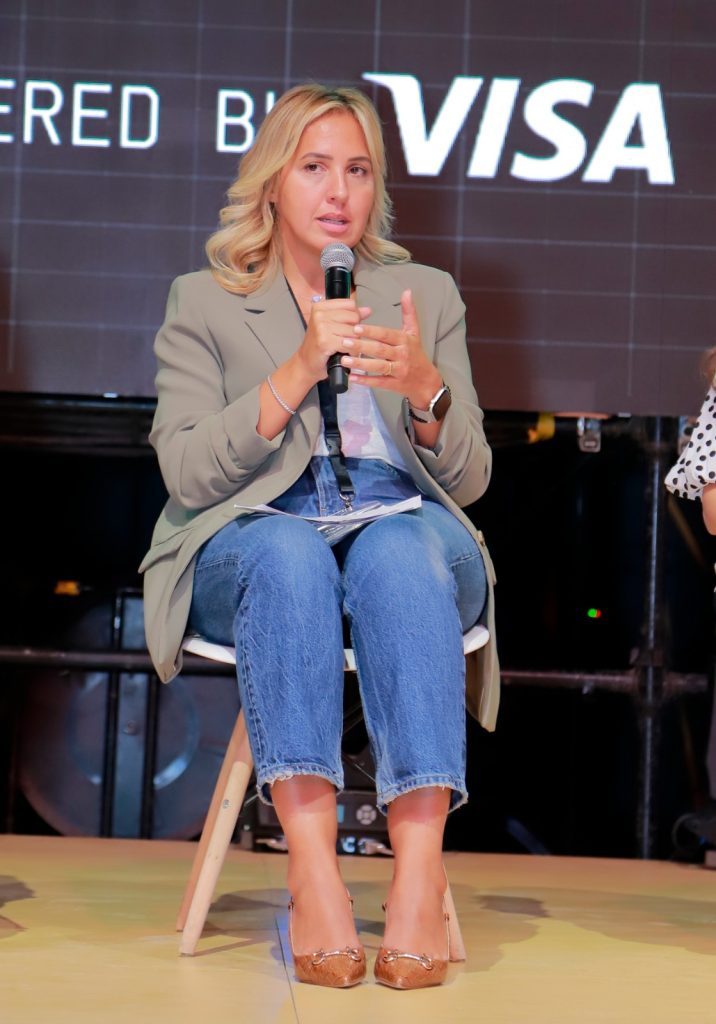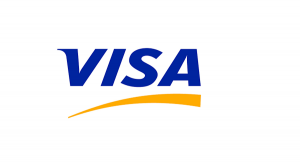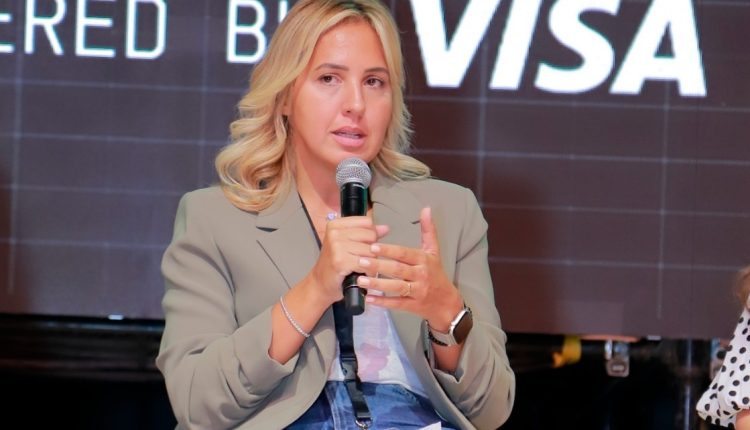By: Reham Ali
In an exclusive interview with FinTech gate website, Visa’s Egypt Country Manager Malak El Baba highlighted the role played by the Global digital payments leader in supporting start-ups, saying the company helped emerging companies in over 100 world countries to have access to funding of more than USD 16 billion. She also spoke about the electronic payments market in Egypt and Visa’s partnerships with the Egyptian government, the Central Bank of Egypt (CBE), and other government bodies, as well as the private sector, to advance the State’s plans for applying digital transformation.

Interview Questions:
Fintechgate:
* The Egyptian market has witnessed a major transformation in payments and cash transactions for several years. What is your vision for the electronic payments sector in Egypt and how much does it represent of the total volume of payments in the Egyptian market? What are your expectations for this sector and its proportion to the market in the coming period with the expansion pursued by the state?
Malak El Baba:
– Our strategy is clearly to strengthen our presence and expand the digital payments ecosystem in Africa, through attracting the best tech talents, creating meaningful partnershipswith the with the rest of the eco-system
· Covid-19 has highlighted the necessity of having a strong technology infrastructure in place to prepare for the future digital world. The importance of digital cannot be understated and in the payments space we have seen consumers globally and in Egypt are demanding digital payment options over cash. It is driving changes in the way we use technology and will have a lasting effect on the global economy. To stay competitive, organizations must recognize the importance of digital transformation and take steps to ensure they are prepared for the future.
· CEMEA PCE is at 12% and inspite of the government efforts, Egypt is still running behind but nevertheless Egypt has achieved great milestones in the adoption of new payment technologies and financial & banking services in general, with all indicators showing a consolidated and sustained growth trajectory in the past years.
Fintechgate:
* How do you assess Egyptian citizen behavior in the field of electronic payments, and is there a difference in citizen behavior in Egypt, the Arab region, and globally through your monitoring?
Malak El Baba:
– Digital payments are still on the rise, as we see that transactions count is growing by double digit growth rate YOY, and event though the spending rate was not affected, but as a result of the current economic challenges the world is witnessing, we have seen substantial shifts in consumers spending priorities, for example we can see less spending on groceries, leisure and entertainment in favour of necessties like transportation, education and telecom. We have also seen more a rise in discount stores spending vs. department stores.
Visa conducted a consumer study in 17 markets across CEMEA, and surprisingly the results were very similar in most of the markets. According to the latest Stay Secure study, over-confidence is leaving consumers in Egypt open to becoming victims of fraud. 58% of the respondents claimed to be savvy enough to sidestep online and phone scams, but the reality is that nine out of ten (91%) are likely to disregard the warning signs that suggest online criminal activity. This is slightly higher than the global average, which shows that 56% claim to be savvy enough to sidestep scams, while 90% are likely to disregard the warning signs.
The study also found that 53% of the respondents have been a victim of a scam at least once, against a global average of 52%, while 14% of the victims have been tricked multiple times, which is slight lower than the 15% global average.

Fintechgate:
* Many citizens are still afraid of using electronic payment channels for fear of electronic fraud. There are major developments in the field of data protection, perhaps daily. How does Visa deal with this issue to assure consumers against fraud and What security measures must be followed when using a Visa card? Should all cardholders do this to protect their data from electronic Fraud?
Malak El Baba:
– We believe that the trust, scale, and security we bring to the table is more valuable than ever. Visa has invested more than $10 billion in technology over the past five years, globally. This investment has enabled us to develop new products and capabilities that help reduce fraud and enhance network security for our clients, partners, and employees.
Visa’s Cybersecurity team, an elite group of cybersecurity professionals located in 11 offices on three continents—operates with 24x7x365 vigilance to detect, prevent, and respond to threats in real-time. Our team has built a suite of proprietary AI-powered tools to proactively catch and action anomalies that present potential threats to our network and stakeholders.
We have over 1000 full-time cybersecurityspecialists using neural networks to analyze petabytes of data that enables them to protect Visa’s network from malware, zero-day attacks and insider threats.
Fintechgate:
* Visa announced earlier that it has submitted to the Egyptian government proposals and solutions for the development of the electronic payments system in many sectors, what are the features of these proposals?
Malak El Baba:
– Visa has been a partner for the Egyptian government and Central Bank to advance digital payments to support the country’s digital transformation and financial inclusion agenda, and a key part of its mission is to support Egypt’s transition from a cash-based economy to a digital economy so that everyone in the country can benefit from the convenience, security, and reliability of digital payments.Government sectors digitization is on top of our agenda, as digital payments provide efficiency, transparency and governance tools needed.
Fintechgate:
* Did Corona have an impact on creating a shift in the electronic payments system in Egypt, and what is its percentage?
Malak El Baba:
– Inclusive digital financial services are a game changer for financial inclusion, they simply provide access to anyone anywhere and this includes the less vulnerable who are more easily affected by the socio-economic changes and the disruption caused by the pandemic.
Covid-19 has highlighted the necessity of having a strong technology infrastructure in place to prepare for the future digital world. The importance of digital cannot be understated and in the payments space we have seen consumers globally and in Egypt are demanding digital payment options over cash. It is driving changes in the way we use technology and will have a lasting effect on the global economy. To stay competitive, organizations must recognize the importance of digital transformation and take steps to ensure they are prepared for the future.

Fintechgate:
* Visa has signed many partnerships with companies in Egypt to provide innovative electronic payment solutions, what are the most important of these partnerships, and are there any intentions for new partnerships with Egyptian companies?
Malak El Baba:
– Visa partners for the Egyptian government and Central Bank to advance digital payments to support the country’s digital transformation and financial inclusion agenda, and a key part of its mission is to support Egypt’s transition from a cash-based economy to a digital economy so that everyone in the country can benefit from the convenience, security, and reliability of digital payments. Some exapmles to these is the Citizenship Cardto digitize all government to Citizen payments
We also partner with financial instituions, MNOs and fintech companies to scale our unmatched network and their local reach to bring the latest digital paymentsinnovations to everyone everywhere.
Fintechgate:
* Visa has signed partnerships with investment platforms and funds specialized in startups in order to support this type of company. What are the main objectives of these companies and their results so far and what are Visa’s targets from this support?
Malak El Baba:
– Visa has a long-standing relationship with fintechs globally and all the more in Egypt which has an extremely exciting fintech scene. For example:
· Visa has been running the Visa Everywhere Initiative for years and last year had an Egypt specific one where we expected 80 to 100 applications, but we received 270 including some very prominent names.
· The competition was in partnership with Fintech Egypt, an initiative by the Central Bank of Egypt.
· During the event we had more than 200 VIPs and 6 government speakers. Neqabty, which is the first fintech platform for automating syndicates and labor unions in Egypt and Africa, won first place and prize money of 500,000 EGP as well as the Audience & Employee Favorite award. ZealPay was runner-up, and ElGameya was the third-place finisher.
· The Fintech Accelerator Program is a virtual 12-week program that runs twice a year, accepting up to 20 startups per cohort. Startups generating revenue or operating in Africa are welcome to apply post-minimum viable product to Series A stage. The winners of the first cohort will be announced in a few days.
· Plug and Play is the program and investing partner for the Visa Africa Fintech Accelerator. The Plug and Play team will provide personalized one-on-one mentoring, deliver curated content over the course of 12 specialized focus weeks and connect the startups with their global investment team for investment consideration and review.
Fintechgate:
* What are your plans for expansion in the Egyptian market, particularly in the payments sector, and are you planning to launch new products, if so, what are they? And What are the most prominent solutions provided by Visa to small and medium-sized companies and entrepreneurs in Egypt and its advantages?

Malak El Baba:
– With cutting-edge technology at the heart of the process, Visa designs and co-create innovative customer centric products and solutions that are shaping the future of commerce
We work with a wide range of partners –governments, banks, fintechs, merchants, and mobile network operators –to uncover new commerce opportunities andwe continue to work in lockstep with our bank and industry partners to support local merchants and their shift to digital.
We harness the power of data and insights to help our clients and partners innovate and grow their business.
Visa views small businesses as backbone of the economy and is committed to empowering owners of these businesses and entrepreneurs with resources, knowledge and skills that can support them in rebuilding -or starting- stronger businesses in the current context.
· Click to Pay: Last year, Visa launched “Click to Pay” in the NALP countries, which helps consumers make secure and fast online purchases from various merchants and platforms.
· Visa Secure: Using the industry-wide EMV 3-D Secure messaging standard, Visa has been designed keeping in mind consumers’ increasing preference for frictionless, secure and easy transactions. This risk-based authentication process eliminates the need for most cardholders to type in passwords to complete their online purchases, resulting in fewer steps at checkout (less friction) and fewer instances of false declines.
· Visa Direct: Consumers, governments, and businesses need and expect secure and immediate access to funds digitally and are looking for new ways to process their payments. We have seen a rapidly growing demand for peer-to-peer money transactions across the region. Visa’s real-time push payments platform, Visa Direct, addresses the challenges of moving money in new ways, particularly in the COVID -19 environment.
Fintechgate:
* What role does Visa play in attracting foreign investors to invest in digital banks in Egypt? Visa announced that it aims to attract foreign investors in this field, are there any results for this and what are they? Everyone is waiting for the announcement of the results of this approach from Visa. Are there agreements between foreign investors to apply for the license, whether individually or through Egyptian partnerships?
Malak El Baba:
– Visa operates in over 200 markets and territories, with over 80 million merchants on its network, and our role as a global payments leader with the biggest payments network is to accelerate digital-first experiences –enabling the movement of money and secure transactions across the globe, connecting billions of people andcreating billions of opportunities.
Fintechgate:
* Is Visa researching the impact of artificial intelligence on the future of payments in Egypt?
Malak El Baba:
– AI can play a significant role in ensuring payment security. While cybercrime persists in an increasingly digital world, Visa is tirelessly working behind the scenes to stay one step ahead. Worldwide, we have invested over $10 billion over the past five years in technology, including to reduce fraud and enhance network security. This has included $500 million on Artificial Intelligence (AI) and data infrastructure, enabling us to power 100 different capabilities that use AI to protect our clients and customers.

Fintechgate:
* Can we see VISA contribute or establish an investment fund for its own at the start-ups or FinTech startup companies, especially since you announced your interest earlier?
Malak El Baba:
– Visa provides funding for startups through various programs. For example:
· Visa Everywhere Initiative is a global, open innovation program that provides startups and entrepreneurs with a global stage to showcase innovative payment products and solutions.
· To date, the program has helped start-ups from over 100 countries collectively raise more than USD $16 billion USD in funding, addressing one of the biggest challenges faced by early-stage entrepreneurs.









